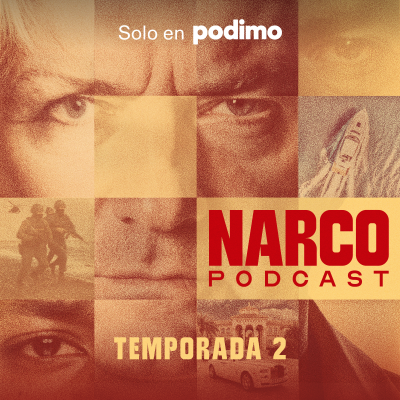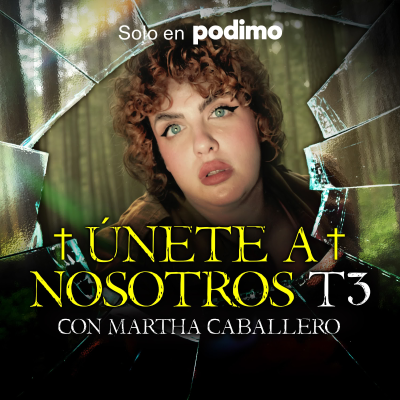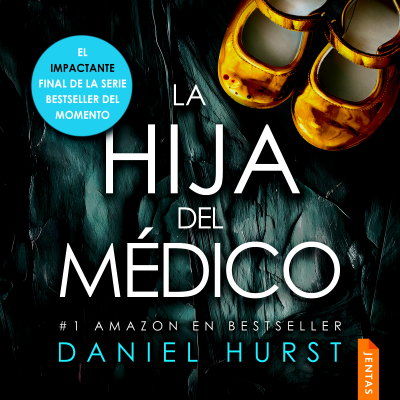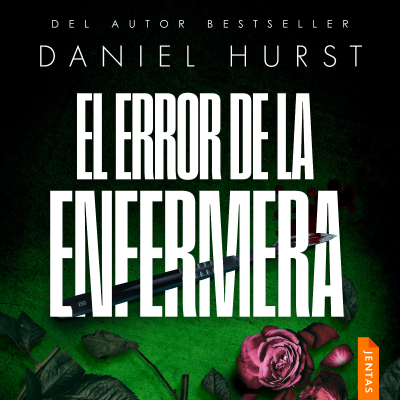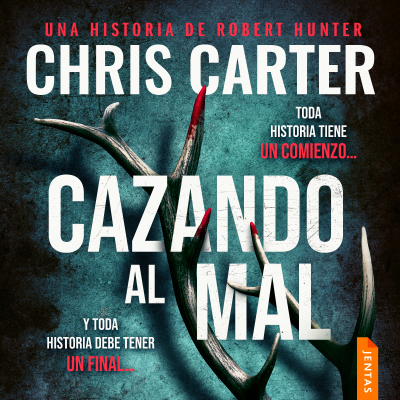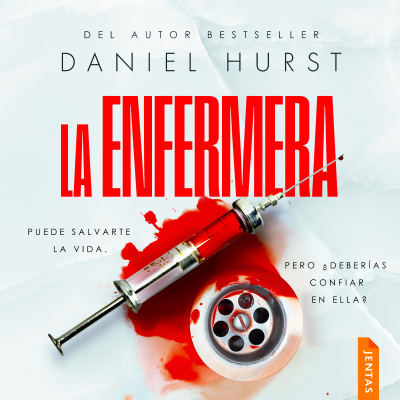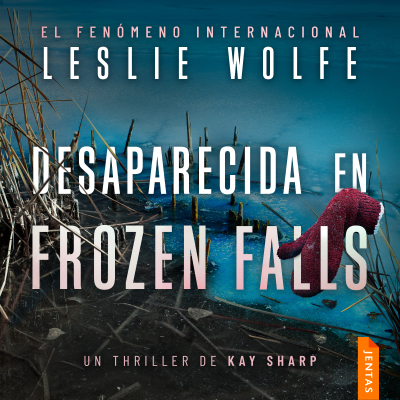
Circularity.fm
inglés
Negocios
Oferta limitada
2 meses por 1 €
Después 4,99 € / mesCancela cuando quieras.
- 20 horas de audiolibros / mes
- Podcasts solo en Podimo
- Podcast gratuitos
Acerca de Circularity.fm
Circularity.fm is the podcast about understanding, building and managing circular business models. Most episode showcase one specific organisation that runs a circular business model or a business model in the circular economy. This can be a startup, an established SME or a business field of a corporate. Hence, interviews are both about founding and funding a circular business as well as transforming an existing linear business to a circular one, be it in Europe, North America, South America, Asia, Africa or Australia. The podcast focuses on experiences made in this build-up and transformation phase.
Todos los episodios
85 episodiosCircular Design: Rethinking Products
Implementing Circular Design Principles How can rethinking product design drive innovation, circularity and reduce costs? In this episode, Nicola Stattmann, Co-founder and CEO of OMC°C, explains why circular product development, when integrated from the start, leads to less investment needed. The conversation looks at how rethinking material and component choices enable innovation and simplify manufacturing, using the Nike Flyknit's reduction from 50 components to 5 as an example. What you'll hear in this episode: • Why less materials, components, and process steps translates to reduced costs • The role of curiosity and enthusiasm in rethinking how products are made • Why designers need to make their processes transparent to gain alignment across departments The episode also explores how Stattmann applied these principles at OMC°C, building an interdisciplinary team of top experts to develop a modular urban greening system. This episode was recorded in German. English subtitles are available on YouTube. This is the second episode in the series Implementing Circular Design Principles, produced in collaboration with the German Design Council. The series explores how design decisions shape circular outcomes at the material, product, and system level, following the principles of Rethink, Reduce, Reuse, and Recycle. People Nicola Stattmann, Co-founder and CEO of OMC°C at OMC°C, Büro Nicola Stattmann https://www.linkedin.com/in/nicola-stattmann-a5b612244/ [https://www.linkedin.com/in/nicola-stattmann-a5b612244/] Patrick Hypscher, Circular Business Strategist, PaaS Expert https://www.linkedin.com/in/hypscher/ [https://www.linkedin.com/in/hypscher/] Chapters 00:00 Introduction to Nicola's Career and Achievements 00:39 Personal Insights on Circular Products 02:38 Exploring the Concept of Rethink with Nike Flyknit 06:35 The Importance of Circularity in Product Development 09:11 Challenges and Strategies in Product Design 15:32 OMC-C: Revolutionizing Urban Greening 20:25 Navigating Bureaucratic Hurdles 29:47 Final Thoughts on Circular Design and Impact About Büro Nicola Stattmann is a Frankfurt-based office founded by product designer Nicola Stattmann that works at the intersection of product design, materials research, and technology. OMC°C (Office for Micro Climate Cultivation) was co-founded by Nicola Stattmann. The company develops modular greening systems for building façades and urban spaces to counter heat islands and improve biodiversity. Further Links Find more information on: Circular Design Summit https://www.german-design-council.de/en/circular-design-summit [https://www.german-design-council.de/en/circular-design-summit] Nicole Stattman: https://nicolastattmann.com/ [https://nicolastattmann.com/] Nike Flynit: https://www.nike.com/flyknit [https://www.nike.com/flyknit] VERD: https://omc-c.com/ [https://omc-c.com/] One-page Summary Sign-up for the Circularity.fm Newsletter and get a summary with the take-aways of this episode. Register here: https://circularity.fm/circular-design-rethinking-products/ [https://circularity.fm/circular-design-rethinking-products/]
Circular Design Principles: Overcoming Material Barriers
Implementing Circular Design Principles What should designers know about materials before product development? In this episode, Andreas Maegerlein, Head of the Creation Center Europe at BASF, talks about circular design from a material perspective, focusing on how material choices enable or limit circularity. The conversation looks at how product design is affected when materials are developed to last for decades, while products are often designed to be disposable or short-lived. What you’ll hear in this episode: • The importance of aligning material choice with product lifetime and use cycles •Why material selection need to be informed by recycling infrastructure, recycling technologies, and energy-usage • How the role of designers is evolving from showcasing quality alone toward also conveying sustainability This episode opens the series Implementing Circular Design Principles, produced in collaboration with the German Design Council. The series explores how design decisions shape circular outcomes at the material, product, and system level, following the principles of Rethink, Reduce, Reuse, and Recycle. People Andreas Maegerlein, Head of Creation Center Europe at BASF https://www.linkedin.com/in/andreas-maegerlein-06564778/ [https://www.linkedin.com/in/andreas-maegerlein-06564778/] Patrick Hypscher, Circular Business Strategist, PaaS Expert https://www.linkedin.com/in/hypscher/ [https://www.linkedin.com/in/hypscher/] Chapters 00:00 Introduction 03:41 The Scope of BASF’s Product Range 05:33 The Role of the Creation Center 06:55 Translating Design Needs into Material Science 08:45 Prerequisites for Reuse 11:08 Material Longevity vs. Product Lifespan 13:48 Supporting Highly Recyclable Design 15:31 The Complexity of Plastic Sorting and Separation 22:31 Recycling Technologies and Materials 28:09 Barriers to Adopting Recycled Materials 31:09 Industry Examples of Recycled Content 35:09 Rethinking Business Models for Circularity 36:58 Designing the Appearance of Sustainability 42:53 Outro About BASF is a global chemical company headquartered in Ludwigshafen that supplies materials and solutions to industries such as automotive, construction, packaging, and consumer goods. Alongside its broader sustainability and circular-economy program, BASF runs a network of Creation Centers where designers, engineers, and customers work with BASF experts in dedicated spaces that combine materials libraries, workshops, and digital tools to explore polymers, test applications, and develop new products with a focus on efficient use of resources and recyclability. Further Links Find more information about: Circular Design Summit: https://www.german-design-council.de/en/circular-design-summit [https://www.german-design-council.de/en/circular-design-summit] BASF Creation Center: https://www.basf.com/eg/en/products/plastics-rubber/creation_center/Ludwigshafen [https://www.basf.com/eg/en/products/plastics-rubber/creation_center/Ludwigshafen] One-page Summary Sign-up for the Circularity.fm Newsletter and get a summary with the take-aways of this episode. Register here: https://circularity.fm/circular-design-principles-overcoming-material-barriers/ [https://circularity.fm/circular-design-principles-overcoming-material-barriers/]
The Commercial benefits: Using recyclates in Washing Machines by V-ZUG
Recycled Plastics for Premium Brands How do you identify and act on the biggest levers in your environmental footprint? In this episode, Marcel Niederberger, Head of Sustainability, and Marc Vetterli, Sustainability Expert in Engineering, explain how V-ZUG used life cycle assessment to discover that material intensity (and not just energy efficiency) drives environmental impact in home appliances. What you'll hear in this episode: • Why it is essential to carry on life-cycle assessments of all products. • The development process behind high-quality recycled ABS for visible white panels in washing machines and dryers, and its scalability. • V-ZUG's self-imposed CO2 penalty that funds fundamental research and early-stage circular projects. The episode also explores practical implementation topics, including closing material loops with suppliers, designing for reuse across product generations, and building competitive advantage. This episode concludes the "Recycled Plastics for Premium Brands" series, sponsored by HolyPoly. The series focused on the practicalities of using technical recyclates in long-lasting, high quality products. People Marcel Niederberger, Head of Sustainability at V-Zug https://www.linkedin.com/in/marcel-niederberger-18a588105/ [https://www.linkedin.com/in/marcel-niederberger-18a588105/] Marc Vetterli, Sustainability Expert Engineering at V-Zug https://www.linkedin.com/in/marc-vetterli-96456b17a/ [https://www.linkedin.com/in/marc-vetterli-96456b17a/] Patrick Hypscher, Circular Business Strategist, PaaS Expert https://www.linkedin.com/in/hypscher/ [https://www.linkedin.com/in/hypscher/] Chapters 00:00 Introduction 03:26 Reasons for Increasing the Share of Recycled Materials 06:28 V-Zug’s Circularity Approach - R’s Strategies 09:06 Material Loops and Recycled Plastics Deep-dive 23:06 Cost Factors and Supply Chain Considerations 29:32 Product Design 33:26 Funding Projects 35:35 Material Properties 38:57 Circularity - Scaling and Competitive Advantage About V-ZUG is a Swiss premium manufacturer of household appliances, specialising in high-end kitchen and laundry equipment designed for long service lives. V-ZUG collaborates with partners to integrate recycled materials, including selected plastics, into its products while maintaining stringent performance and design standards. Further Links https://www.vzug.com [https://www.vzug.com] One-page Summary Sign-up for the Circularity.fm Newsletter and get a summary with the take-aways of this episode. Register here: https://circularity.fm/podcast-episodes/the-commercial-benefits-using-recyclates-in-washing-machines-by-v-zug/ [https://circularity.fm/podcast-episodes/the-commercial-benefits-using-recyclates-in-washing-machines-by-v-zug/]
Feasibility & Desirability: How Bosch built a drill from post-consumer recycled plastics
Recycled Plastics for Premium Brands Can recycled technical plastics meet quality, performance, and price requirements at the same time? In this episode, Isabelle Gola from Bosch Power Tools explains how Bosch developed a closed-loop pilot for power tools using recycled technical plastics while maintaining the same quality and performance standards, at the same price point for the end consumer. What you’ll hear in this episode: • How recycled technical plastics were tested against existing quality and performance specifications. • How communication, certification, and transparency shaped internal alignment and customer response. • How Bosch defined success in the pilot, with feedback, learning, and data as central KPIs. The episode also looks at practical challenges behind the closed-loop approach, including reverse logistics considerations, sourcing sufficient volumes, and using disassembly data to inform eco-design and future product development. This episode is part of the “Recycled Plastics form Premium Brands” series, sponsored by HolyPoly. People Isabelle Gola, Head of Sustainability at Bosch Power Tools https://www.linkedin.com/in/isabelle-gola-62116b198/ [https://www.linkedin.com/in/isabelle-gola-62116b198/] Patrick Hypscher, Circular Business Strategist, PaaS Expert https://www.linkedin.com/in/hypscher/ [https://www.linkedin.com/in/hypscher/] Chapters 00:00 Introduction 02:39 From Plastic Shortage to Closed Loop 05:27 The Four-Step Technical Pilot Roadmap 07:00 Reverse Logistics: The Challenge of the 17-Year Lifespan 09:56 Data Mining: 500,000 Data Points for Eco-Design 16:09 Technical Feasibility & Quality Validation 33:25 Communication Strategy 34:43 Isabelle's Personal Learning About Bosch Power Tools is a division of the Bosch Group that develops and manufactures power tools, accessories, and measuring equipment for professional tradespeople and DIY users worldwide. In addition to product performance, Bosch Power Tools integrates sustainability and circular-economy principles into its strategy by improving repairability and product lifetimes, working on resource-efficient designs and materials, and expanding approaches for reusing and recycling tools and components across their life cycle. Further Links https://www.bosch-professional.com [https://www.bosch-professional.com] One-page Summary Sign-up for the Circularity.fm Newsletter and get a summary with the take-aways of this episode. Register here: https://circularity.fm/podcast-episodes/feasibility-desirability-how-bosch-built-a-drill-from-post-consumer-recycled-plastics/ [https://circularity.fm/podcast-episodes/feasibility-desirability-how-bosch-built-a-drill-from-post-consumer-recycled-plastics/]
Post-Consumer Recyclate: How to get organisational buy-in - The Vorwerk Case
Recycled Plastics for Premium Brands How do you get organisational buy-in for sustainable initiatives? In this episode, Nhung Kieu, Head of Sustainability at Vorwerk Group, and Michael Kroh, Fellow Materials Engineering and Sustainability Officer at Vorwerk Engineering, share how Vorwerk increased the use of recycled plastics in products such as Thermomix and Kobold vacuum cleaners. Based on Vorwerk’s experience, we discuss how organisational support was built across engineering, procurement, and management. What you’ll hear in this episode: • What drove Vorwerk to increase recycled content and position sustainability as part of the business strategy. • Which barriers had to be addressed, including quality perceptions, pricing constraints, and internal skepticism. • Which factors help to create both sustainability impact and economic value. Listen now to get a practical perspective on how circular initiatives gain traction inside organisations by aligning technical feasibility with business and organisational realities. This episode is part of the “Recycled Plastics form Premium Brands” series, sponsored by HolyPoly. People Michael Kroh, Materials Engineering and Sustainability Officer at Vorwerk Engineering. https://www.linkedin.com/in/dr-michael-kroh-72626b169/ [https://www.linkedin.com/in/dr-michael-kroh-72626b169/] Nhunh Kieu, Head of Sustainability at Vorwerk Group https://www.linkedin.com/in/nhungkieu/ [https://www.linkedin.com/in/nhungkieu/] Patrick Hypscher, Circular Business Strategist, PaaS Expert https://www.linkedin.com/in/hypscher/ [https://www.linkedin.com/in/hypscher/] Chapters 00:00 Introduction 05:02 Usage of Recycled Plastic in Vorwerk's Products 06:29 Motivation for Improving the Share of Recycled Materials 09:46 Sustainability as Integrative Business Strategy 11:51 Barriers to Increasing Recycled Content 15:24 Premium Pricing Considerations 17:05 Strategies for Gaining Stakeholder Support 21:52 The Role of Communication in Sustainability 26:48 Outro About Vorwerk is a German family-owned consumer-goods group known for high-quality household appliances, built around direct sales and long-term customer relationships. Founded in 1883 and headquartered in Wuppertal, Vorwerk focuses on durable, premium products such as Thermomix multifunctional kitchen machines and Kobold vacuum cleaners. The company emphasises innovation and reliability, combining engineering, service, and maintenance concepts to keep devices in use for many years, and it increasingly integrates sustainability by improving energy efficiency, using more recyclable materials, and aligning its product design and operations with circular-economy principles. Further Links https://www.vorwerk.com [https://www.vorwerk.com] One-page Summary Sign-up for the Circularity.fm Newsletter and get a summary with the take-aways of this episode. Register here: https://circularity.fm/podcast-episodes/post-consumer-recyclate-how-to-get-organisational-buy-in-the-vorwerk-case/ [https://circularity.fm/podcast-episodes/post-consumer-recyclate-how-to-get-organisational-buy-in-the-vorwerk-case/]
Elige tu suscripción
Oferta limitada
Premium
20 horas de audiolibros
Podcasts solo en Podimo
Podcast gratuitos
Cancela cuando quieras
2 meses por 1 €
Después 4,99 € / mes
Premium Plus
100 horas de audiolibros
Podcasts solo en Podimo
Podcast gratuitos
Cancela cuando quieras
Disfruta 30 días gratis
Después 9,99 € / mes
2 meses por 1 €. Después 4,99 € / mes. Cancela cuando quieras.













